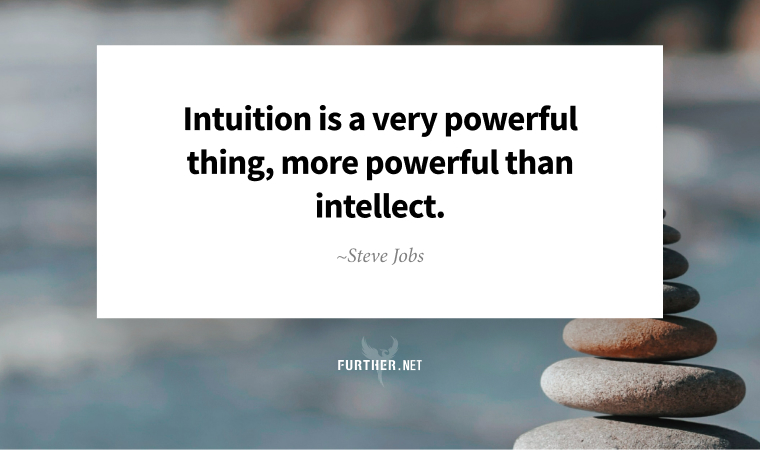
We’re living in a time of data deluge, where research says we take in the equivalent of 34 gigabytes of information daily — enough to fry your laptop within a few days. Now, compound that by an unprecedented level of uncertainty and bias in the media we consume, decision-making is more complicated than ever before.
Still, underneath it all, we have an innate ability to choose wisely regardless of the data. Turns out that knowing things without knowing we know them is something we’re all wired to do.
When it comes to making the most out of your intuition, trusting your sixth sense is primary.
Basic Instinct
Intuition, as Boston once sang, is more than a feeling. Science shows that we store emotional responses to experiences and use them as part of our internal guidance system. According to neuroscientist Antonio Damasio, bodily systems cues, like heart rate, muscle tone, and endocrine activity, all evolved to help us safely and intuitively navigate our world.
These ‘somatic markers’ translate unconscious emotions and sensations into felt instinct. This evolutionary strategy allows us to make quick decisions that require minimal thought to enhance survival.
This is what we call a “gut feeling.” And actually, your gut has a lot of the same neurotransmitters as the brain. It filters and sends that unconscious information to the brain to help you hone in on the best path forward.
Combine those primal impulses with rational thought, and you’ve got a powerful ability to make better decisions.
Use Your Inside Voice
This is not to say that intuition is always reliable. Going back to the firehouse of information that continuously pummels us, it’s not easy to distinguish the signal from the noise. The trick is to quiet your mind so you can access your thoughts about a given situation.
Learning to read all of the input from the world means balancing reason with emotion held within the stillness at our core.
There are loads of ways to give yourself time to think, from meditation to walking or carving out an hour for purposeful daydreaming. Silence is key to inner knowing – the very definition of intuition.
To help assess your instinct, be sure to think about the kind of problem you’re facing and the context in which you’re operating. If there’s a high level of uncertainty, and it’s impossible to use data to calculate probabilities and risk, it’s a good time to let your gut weigh in. Ditto if you want to make a choice that’s distinctively yours, separating you from others who have the same information.
When looking for the best solution, your intuition can lead you to discover that ultimately, you really do know best.
The Science of Intuition (Psychology Today)
